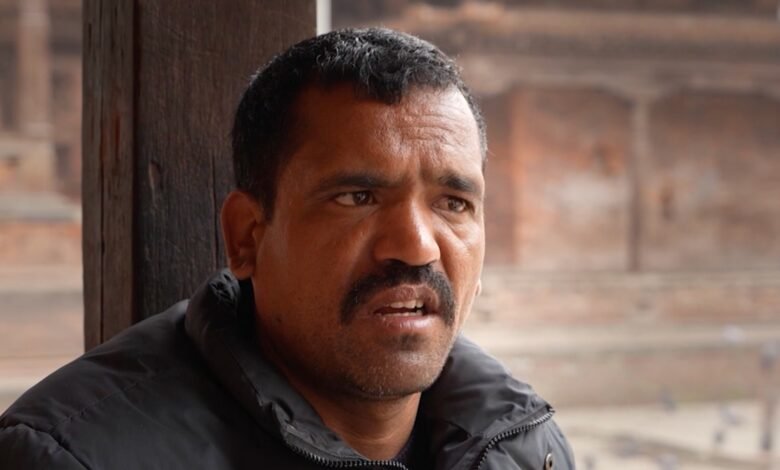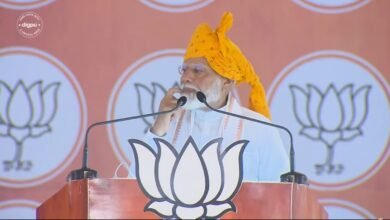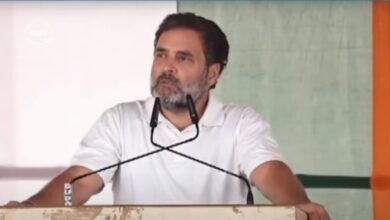Desperate Journeys: Nepali and Indian Workers Navigate Conflict Zones in Search of Livelihood
From the Frontlines of Ukraine to the Fields of Israel: Economic Desperation Knows No Borders.

Nepal, a landlocked nation nestled in the Himalayas, is known for its serene landscapes and resilient people. However, amidst the tranquility, a dark cloud looms over numerous households as their loved ones find themselves entangled in a conflict far from home.
Ramchandra Khadka, a 37-year-old Nepali, recently returned to Kathmandu with wounds both physical and emotional. Having fought as a Maoist rebel and later serving as a mercenary in Afghanistan, Khadka’s journey took an unexpected turn when he found himself amidst the chaos of Russia’s war in Ukraine.

In a recent interview with CNN, Khadka recounted the horrors he witnessed on the front lines in eastern Ukraine. “There isn’t an inch of land in Bakhmut that’s not affected by bombs,” he lamented, describing a scene of devastation where trees and homes alike were reduced to rubble. His decision to join the Russian military, driven by economic desperation, quickly turned into a nightmare as he found himself dodging bullets and shrapnel.
Khadka’s story is not unique. According to multiple sources cited by CNN, as many as 15,000 Nepali men have joined Russia’s military ranks enticed by a promise of financial security. In a country where job opportunities are scarce and poverty is rampant, the allure of a $2,000 monthly salary and a fast-tracked path to a Russian passport proved too tempting for many.
However, the reality of war has shattered their dreams. Official estimates from the Nepali government suggest that around 200 Nepalis are fighting in Ukraine, with at least 13 reported deaths. Yet, lawmakers and rights’ campaigners argue that these figures grossly underestimate the true scale of Nepali involvement. Bimala Rai Paudyal, a prominent Nepali lawmaker, has urged the Russian government to provide accurate statistics on the number of foreign fighters in its ranks.
Indian Workers Seek Opportunities in Israel Amidst Conflict
Traversing continents, a similar tale unfolds in the bustling streets of India’s Haryana region. Thousands of men, ranging from masons to farmers, converge in search of employment opportunities in Israel, where the ongoing conflict in Gaza has created a demand for labor. Despite the dangers posed by the conflict, these individuals see employment abroad as a lifeline amidst economic uncertainty, willing to brave the unknown for the promise of a better future.

For Lekharam, a mason among the hopefuls gathered at a recruitment camp in Rohtak, the decision to seek employment in Israel is driven by the stark realities of unemployment and poverty back home. “There is unemployment here, and it’s because of it that people want to leave,” he says, echoing the sentiments of many.
The parallels between these two stories are unmistakable. Both Khadka’s ordeal and the plight of Indian workers highlight the pervasive impact of poverty on individuals’ choices, driving them to seek opportunities abroad despite the risks involved. In the face of adversity, resilience prevails, underscoring the indomitable spirit of those determined to forge a path toward economic security and stability.
Agniveer: India’s New Military Scheme Raises Concerns About Future of Youth
Amidst these narratives, concerns arise regarding India’s new military scheme, Agniveer, which offers an alternative path for individuals seeking employment. Under Agniveer, candidates undergo intensive military training for five years, with no provision for pension benefits upon completion. While ostensibly aimed at bolstering defence capabilities, critics worry about the scheme’s long-term implications for the future of India’s youth.

The possibility that Agniveer could inadvertently lead to the export of trained soldiers to conflicts abroad raises troubling questions about the ethical and moral considerations of such actions. As the debate surrounding Agniveer continues to unfold, one thing remains clear: the need for comprehensive policies that prioritize the well-being and livelihoods of the country’s youth cannot be understated. In a rapidly changing world fraught with uncertainty, ensuring that young individuals have access to meaningful employment opportunities and a secure future should be paramount. Only through thoughtful and inclusive measures can India hope to safeguard the aspirations and dreams of its next generation.







